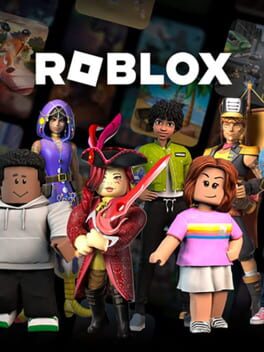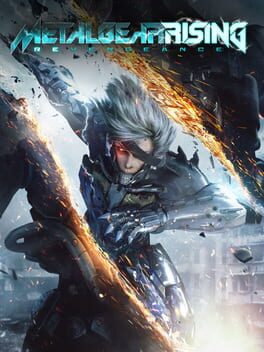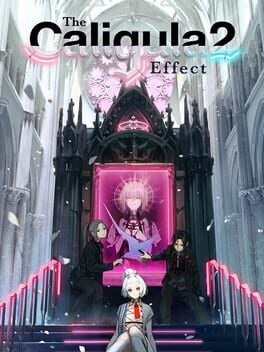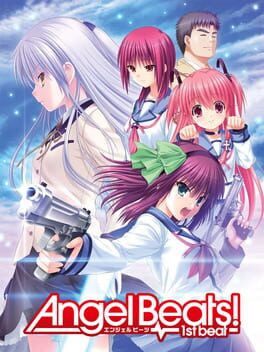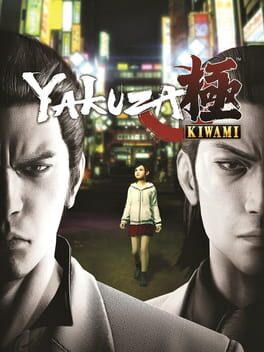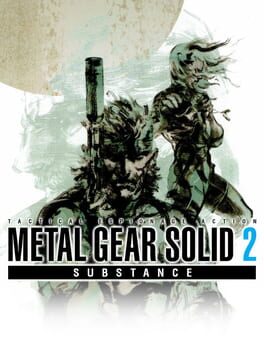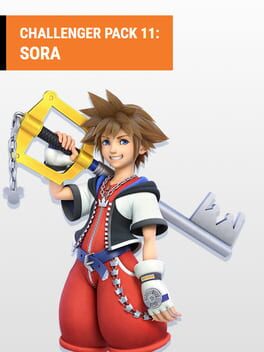16 reviews liked by Warzyan
Roblox
2006
Metal Gear is one of my favorite things ever. And for the longest time, I've had only one last title in the franchise that I needed to play at some point. That, being Rising.
I think this game is quite a treat. It's short, sweet, and simple. The combat is nowhere near as verbose as top-dog hack n slash titles such as DMC and Bayonetta, but it's still incredibly satisfying and addicting to play through. Blade Mode is probably one of the coolest mechanics I've ever seen in a game. It's definitely the aspect of Rising that sets it apart from the rest. The boss fights are all very over-the-top and a sight to behold. Platinum just knows how to make the most ridiculous type of shit in their games. And hey, you'll also be banging your head to all the boss themes while you're doing it.
I find that the game is very easy to master, because as long as you can parry and block in this game you're gucci. There's some various weapons and combos you can purchase throughout the game, but I literally just mashed the attack buttons and never had to actually consider much past that. It's definitely not a game like DMC where you actually have to learn combos and do more than just bullshit your way through the game in order to beat the bosses. Despite there being combos to purchase, I never saw any way to actually learn these combos. They just sort of happened.
It's really funny how this game spews a lot of dialogue in relation to M E M E S. Because this game's plot feels like a meme of the actual main Metal Gear series. A parody. A distorted story trying to push along what Kojima gave us in his games. While I appreciate that they actually tried to have a plot with depth in this game, I wouldn't say it's anything that special. Raiden's character is corny and a betrayal to the way his story got wrapped up in 4. I didn't really ever feel insulted by it per se, because everything else in this game is no more idiotic.
I like to think that this game's story is intentionally a meme of the main series though. Regardless if that's true or not, it certainly makes what would otherwise be a stupid plot actually kind of clever and worth analyzing. From the wacky ways it tries to imitate Kojima's trolling and goofy style, to the way it turns Raiden into a edgelord anime protag, or how it tries to hamfist lots of political themes and discussions into its cutscenes.
Ignoring that perspective though, most of what this game talks about is nothing that hasn't been said in any other Metal Gear game in a much better way that probably left me feeling more stimulated and provoked with thoughts of my own. That being said, Senator Armstrong is such a fucking gigachad and I think is the one shining aspect of this game's narrative. He's like a meme of Big Boss and his ideology and it's actually pretty goddamn clever and relevant. A character in this game who is intentionally very fucking stupid, but not stupidly written.
Also, this game crashed and caused my PC to have to restart multiple times throughout my 7 hour playthrough. So as fun as this game was, I will probably never install this game again for that alone.
I think this game is quite a treat. It's short, sweet, and simple. The combat is nowhere near as verbose as top-dog hack n slash titles such as DMC and Bayonetta, but it's still incredibly satisfying and addicting to play through. Blade Mode is probably one of the coolest mechanics I've ever seen in a game. It's definitely the aspect of Rising that sets it apart from the rest. The boss fights are all very over-the-top and a sight to behold. Platinum just knows how to make the most ridiculous type of shit in their games. And hey, you'll also be banging your head to all the boss themes while you're doing it.
I find that the game is very easy to master, because as long as you can parry and block in this game you're gucci. There's some various weapons and combos you can purchase throughout the game, but I literally just mashed the attack buttons and never had to actually consider much past that. It's definitely not a game like DMC where you actually have to learn combos and do more than just bullshit your way through the game in order to beat the bosses. Despite there being combos to purchase, I never saw any way to actually learn these combos. They just sort of happened.
It's really funny how this game spews a lot of dialogue in relation to M E M E S. Because this game's plot feels like a meme of the actual main Metal Gear series. A parody. A distorted story trying to push along what Kojima gave us in his games. While I appreciate that they actually tried to have a plot with depth in this game, I wouldn't say it's anything that special. Raiden's character is corny and a betrayal to the way his story got wrapped up in 4. I didn't really ever feel insulted by it per se, because everything else in this game is no more idiotic.
I like to think that this game's story is intentionally a meme of the main series though. Regardless if that's true or not, it certainly makes what would otherwise be a stupid plot actually kind of clever and worth analyzing. From the wacky ways it tries to imitate Kojima's trolling and goofy style, to the way it turns Raiden into a edgelord anime protag, or how it tries to hamfist lots of political themes and discussions into its cutscenes.
Ignoring that perspective though, most of what this game talks about is nothing that hasn't been said in any other Metal Gear game in a much better way that probably left me feeling more stimulated and provoked with thoughts of my own. That being said, Senator Armstrong is such a fucking gigachad and I think is the one shining aspect of this game's narrative. He's like a meme of Big Boss and his ideology and it's actually pretty goddamn clever and relevant. A character in this game who is intentionally very fucking stupid, but not stupidly written.
Also, this game crashed and caused my PC to have to restart multiple times throughout my 7 hour playthrough. So as fun as this game was, I will probably never install this game again for that alone.
The Caligula Effect 2, as the name implies, is a sequel to The Caligula Effect Overdose. A game with a lot of potential and vision hindered mostly by budget. This game, with a vastly higher budget, serves to remedy almost all of the problems present in the first game. However, before I get into the review, I'd like to address the Elephant in the room so to speak. This game, nor the one to come before it, are in any way, shape or form Persona clones. The two series are absolutely nothing alike in story structure or gameplay. The only real similarity they share is being JRPGs in a school setting with bonding elements. They don't even fish for remotely the same audience. The former being something that makes up many, many modern JRPGs and visual novels.
Caligula 2's writing is slightly less ambitious than the first game due to lacking Overdose's signature Magician/double agent route, but it's much more neatly written and structured with better pacing and much more relatable thematically to just about any audience. It's one of the few games I would say simply understands the way it's themes in particular need to be explored and takes an extremely empathetic and grounded approach to them as it takes it's time to thoroughly explore them whilst relating back to it's core theme of regret and it's message against escapism by providing worth to the most difficult and punishing lives.
This exact same stance is taken with the characters as well as the characters are written in a flawed but all too human way similar to the first game. The utilization of parallels further solidifies this as the thoughtful, and sometimes rather heated, dialogue provides a lot of character growth based on two people suffering from similar issues as well as a wider exploration of the issues themselves that ran concurrently with the character arcs found in the separate character episodes. This stays true for minor characters and NPCs through side quests as their characters are much more thought out and unique than the first game's as they take on a role of side stories linked to a number of NPCs instead of just minor quests and throwaway dialogue.
Gameplay is a huge step up. Graphical fidelity and production value, while still not high, is used in a much better way whilst having huge improvements. Animations look less robotic, models are much better looking and dungeons, whilst still not amazing, are a huge improvement. Art direction is a big plus too. Everything is better designed on top of better modeled. The actual combat suffers from being easy but is a lot more balanced allowing for only one action per character turn rather than three and just general polishing of the original system. The addition of an actual hub and areas that aren't dungeons makes traversing the game much less of a chore especially with every area actually being modeled this time instead of some just being drawn backdrops. Music is about the same as the first game, which sounded fantastic, and it still sticks to the unique factor of characters composing their own tracks with the party also composing some of the remixes to said tracks.
All in all, The Caligula Effect 2 is a fantastic game and story that manages to fully understand and explore it's own themes, create a grounded story and cast that are relatable and human whilst also being a genuinely fun game to play. My pick for best game of 2021 as it's one that simply just understands people. The Caligula Effect 2 is THE adult JRPG that people have been looking and asking for.
Caligula 2's writing is slightly less ambitious than the first game due to lacking Overdose's signature Magician/double agent route, but it's much more neatly written and structured with better pacing and much more relatable thematically to just about any audience. It's one of the few games I would say simply understands the way it's themes in particular need to be explored and takes an extremely empathetic and grounded approach to them as it takes it's time to thoroughly explore them whilst relating back to it's core theme of regret and it's message against escapism by providing worth to the most difficult and punishing lives.
This exact same stance is taken with the characters as well as the characters are written in a flawed but all too human way similar to the first game. The utilization of parallels further solidifies this as the thoughtful, and sometimes rather heated, dialogue provides a lot of character growth based on two people suffering from similar issues as well as a wider exploration of the issues themselves that ran concurrently with the character arcs found in the separate character episodes. This stays true for minor characters and NPCs through side quests as their characters are much more thought out and unique than the first game's as they take on a role of side stories linked to a number of NPCs instead of just minor quests and throwaway dialogue.
Gameplay is a huge step up. Graphical fidelity and production value, while still not high, is used in a much better way whilst having huge improvements. Animations look less robotic, models are much better looking and dungeons, whilst still not amazing, are a huge improvement. Art direction is a big plus too. Everything is better designed on top of better modeled. The actual combat suffers from being easy but is a lot more balanced allowing for only one action per character turn rather than three and just general polishing of the original system. The addition of an actual hub and areas that aren't dungeons makes traversing the game much less of a chore especially with every area actually being modeled this time instead of some just being drawn backdrops. Music is about the same as the first game, which sounded fantastic, and it still sticks to the unique factor of characters composing their own tracks with the party also composing some of the remixes to said tracks.
All in all, The Caligula Effect 2 is a fantastic game and story that manages to fully understand and explore it's own themes, create a grounded story and cast that are relatable and human whilst also being a genuinely fun game to play. My pick for best game of 2021 as it's one that simply just understands people. The Caligula Effect 2 is THE adult JRPG that people have been looking and asking for.
I did it. I finished the critically acclaimed MMO RPG Final Fantasy XIV. At least until the next expansion.
It was great! I loved it. What was a decade long wait for some was a 7 month long binge for me. I had like a month break between finishing ShB and playing EW.
Despite the abbreviated time, I had gone through arcs both in my own life as well as in Final Fantasy XIV. There was a solid 2 months in there where I didn't play at all. Trudging through Stormblood was, at times, painful. I graduated, got a job, moved halfway across the country between starting XIV and finishing this arc. It is weird.
I will always associate this video game with a very specific moment of my life. One fraught with anxiety, excitement, and being oh so very busy.
How does it stack up to other expansions? It wasn't quite as great as Heavensward of Shadowbringers, but perhaps burnout of a key reason for that, who knows.
I cancelled my sub. I will be back, that was never a question, but for now, I'll let sleeping dogs lie.
It was great! I loved it. What was a decade long wait for some was a 7 month long binge for me. I had like a month break between finishing ShB and playing EW.
Despite the abbreviated time, I had gone through arcs both in my own life as well as in Final Fantasy XIV. There was a solid 2 months in there where I didn't play at all. Trudging through Stormblood was, at times, painful. I graduated, got a job, moved halfway across the country between starting XIV and finishing this arc. It is weird.
I will always associate this video game with a very specific moment of my life. One fraught with anxiety, excitement, and being oh so very busy.
How does it stack up to other expansions? It wasn't quite as great as Heavensward of Shadowbringers, but perhaps burnout of a key reason for that, who knows.
I cancelled my sub. I will be back, that was never a question, but for now, I'll let sleeping dogs lie.
This review contains spoilers
WARNING: This review contains some spoilers and was written assuming the reader already watched the Angel Beats anime and knows what it's all about.
Angel Beats is a series I love, it means a lot to me, but at the same time it also makes me incredibly frustrated, because it absolutely could have been peak fiction if the project was handled well. The anime suffered from pacing issues due to having too much shit to cram in just 13 episodes, but since it was commercially successful, Key decided to capitalize on it by releasing a visual novel. It was announced that it would be an episodic game, with 1st Beat being the basis for subsequent volumes adding more content until it becomes a complete game by the time volume 6 drops. Fuck yeah, I'm finally gonna see the thematically rich concept of Angel Beats having its full potential explored, I can't wait for this to be fully released!
But then, God said "No" and things went south after the release of 1st Beat.
Turns out the Angel Beats VN is one of the main examples I use to elaborate on why I hate the idea of episodic releases, and much prefer games being complete from the get-go. There's no guarantee that an episodic game will reach its end, it may never get past episode 1, or even a later episode if something wrong ends up happening, be it sales not being as strong as expected, or in Angel Beats' case, the creator having to be hospitalized because of health issues. By the time Jun Maeda's heart condition got better, a handful of years have already passed and we had no news of Angel Beats since then, but at this point we all accepted that it was silently canceled and Key, the company that created the series, just moved on to other projects.
Despite that, a full translation for 1st Beat ended up seeing the light of the day last year, and as the biggest Angel Beats fan on the internet, it was my duty to play the shit out of 1st Beat and see how it improves on the anime's obviously flawed narrative. Basically, the game covers episodes 1 to 10 of the anime, which means it will go only as far as that episode focused on Yui, who happens to be one of the three possible character routes you can take in this game, the other two being Iwasawa and, surprisingly, Matsushita Godan. I chose Yui as my first route because it seemed like a closer experience to the anime, and she was a character I didn't care much for in the anime, she was annoying, louder than necessary and her "romance" with Hinata felt half-baked. As good as the last scene with Yui was in the anime, it didn't feel earned because she was little more than a background character who provided some comic relief.
So, how does 1st Beat improve Yui as a character? Well, she's still annoying and yells a lot, but that's to be expected. Her story is greatly expanded upon, however, even from the beginning where she is shown to be a Girl DeMo fangirl and was inspired by them to play guitar, only for Iwasawa to disappear during a story event, much like in the anime. Following Yui's route, we see more of how she felt about this, the sadness of losing her idol and how Iwasawa herself also admired Yui for how much effort she puts on her little street performances around the school, reminding her of her previous life. It's when Otonashi talks about what Iwasawa said that Yui ends up finding the motivation to step in and become the new singer for Girl DeMo. Otonashi's relationship with Yui is more linked with how his relationship with his sister was back when he was alive, and depending on your choices, this might even be the reason why Otonashi recovers memories of that part of his life, as opposed to being hypnotized by Naoi like it was in the anime.
Yui and Hinata also get more screen time and their relationship is more fleshed out, though I wasn't a big fan of how they mostly left this to the end where the POV shifts and now you see past events from Hinata's point of view, but it's still interesting, the fact that Yui was interested in baseball is what drew them close in the first place, he started teaching her to play baseball way before Otonashi did near the end of her route, and despite Yui being bad at baseball, they ended up getting closer, but never admitting they had romantic feelings for one-another. That is, until we get to see a bit of Hinata's past life outside of what the baseball episode showed, and after reflecting on that, he decides to confess his feelings to Yui, leading to a much more satisfying version of that same scene from the anime.
This is basically how 1st Beat rolls, it follows the story of the anime closely, but expands on a lot of elements from it, even the tiniest detail about the afterlife school is explained and there are a lot more character interactions and moments in between the main events of the anime, and there are so many choices and ways to explore the game that it can get a bit overwhelming for a first time player. Right in the first chapter of the game, which covers episode 1 of the anime, you can straight up refuse to join the SSS and get one of the bad endings, but if you choose to join, Otonashi will mention that he forgot his name, and each of the members suggest a nickname for him, and you can pick any you like or just focus more on remembering your name, and depending on which one you picked, the game will actually remember that choice and parts of it will change because of that. Not only that, but the choice system allows you to determine how Otonashi's relationship with a lot of other characters throughout the story will be like, just by how frequently you chose to interact with a specific character who's at a specific location on the map, as well as the dialogue options you chose. Hinata can be either an absolute bro in Otonashi's eyes, a weird guy who's a bit too interested in getting close and might just be gay, or you can make Otonashi literally have a gay crush on Hinata instead!
Granted, not every character has their relationship with Otonashi as well-developed, especially since this isn't a complete game, but you can definitely see how it would develop with certain choices. For example, you can choose to try and save Fujimaki during the water trap in the Guild, and if you did so, he remembers that and treats Otonashi to lunch to thank him. But of course, certain choices lead to certain paths and alternate endings, so you may keep that in mind if you want to follow a specific route, 1st Beat is definitely a game you'll want to look up a guide if you don't want to experiment with the choices and would rather just get to the routes already. Still, it is really impressive how even the choices that seem inconsequential still have some impact, like when you pick Lolicon as Otonashi's provisory nickname and this leads to Yui initially being afraid of him since she's technically a loli, and you can play around further with this by making certain choices that can make Otonashi seem like a lolicon, they wouldn't be there if you haven't made the previous lolicon-related choices.
The routes for Iwasawa and Matsushita are the ones with more content original to 1st Beat, as Iwasawa disappears early in the anime and Matsushita doesn't have that much screen time. I'm not going to spoil much of them here, but Iwasawa's route was my favorite in the game because it expands on what's an already good character in the anime and it's nice to see how things go if she's saved from disappearing when she was supposed to, had some really cool deviations form the anime's story. However, Matsushita's route had a rather confusing end, despite his backstory being interesting, I'm not sure I understood how he ended up moving on and disappearing in the end. There are some choices that tease future content as well, like when you make choices that have Otonashi getting closer to Angel/Kanade as opposed to other characters, a bit of her background in the afterlife is revealed, or a potential gay romance between Otonashi and Hinata in his future route. Seriously, I wonder how huge the finished Angel Beats VN would be like, because despite being incomplete, 1st Beat is so packed with content that it has enough time to rival the lengths of some longer VNs out there, it took me roughly 40 hours to see everything this game has to offer and get every achievement. Also, if you get specific achievements, you unlock Next Beat, which is basically the start of the anime's episode 11 with the Shadows and all, but after Otonashi gets everyone to trust Kanade, it ends with a cliffhanger where they start to fight the Shadows, with a "TO BE CONTINUED" screen.
To be continued? Heh, yeah sure... Fuck you, Key!
Anyway, if you like Angel Beats and want more content out of it, then you definitely should play 1st Beat. Despite it only being the first part of a bigger VN that never was, it still functions as a complement to the anime and has what's possibly the best choice system I've ever seen in a VN, it's so great that I beat 100% of it just because of how fun it was to experiment with the choices and how Otonashi develops as a character through them, or how even the main routes can change depending of some alternate choices you made. Jesus, writing this just made me sadder that we'll never see a fully realized Angel Beats visual novel.
Fuck you again, Key!
Angel Beats is a series I love, it means a lot to me, but at the same time it also makes me incredibly frustrated, because it absolutely could have been peak fiction if the project was handled well. The anime suffered from pacing issues due to having too much shit to cram in just 13 episodes, but since it was commercially successful, Key decided to capitalize on it by releasing a visual novel. It was announced that it would be an episodic game, with 1st Beat being the basis for subsequent volumes adding more content until it becomes a complete game by the time volume 6 drops. Fuck yeah, I'm finally gonna see the thematically rich concept of Angel Beats having its full potential explored, I can't wait for this to be fully released!
But then, God said "No" and things went south after the release of 1st Beat.
Turns out the Angel Beats VN is one of the main examples I use to elaborate on why I hate the idea of episodic releases, and much prefer games being complete from the get-go. There's no guarantee that an episodic game will reach its end, it may never get past episode 1, or even a later episode if something wrong ends up happening, be it sales not being as strong as expected, or in Angel Beats' case, the creator having to be hospitalized because of health issues. By the time Jun Maeda's heart condition got better, a handful of years have already passed and we had no news of Angel Beats since then, but at this point we all accepted that it was silently canceled and Key, the company that created the series, just moved on to other projects.
Despite that, a full translation for 1st Beat ended up seeing the light of the day last year, and as the biggest Angel Beats fan on the internet, it was my duty to play the shit out of 1st Beat and see how it improves on the anime's obviously flawed narrative. Basically, the game covers episodes 1 to 10 of the anime, which means it will go only as far as that episode focused on Yui, who happens to be one of the three possible character routes you can take in this game, the other two being Iwasawa and, surprisingly, Matsushita Godan. I chose Yui as my first route because it seemed like a closer experience to the anime, and she was a character I didn't care much for in the anime, she was annoying, louder than necessary and her "romance" with Hinata felt half-baked. As good as the last scene with Yui was in the anime, it didn't feel earned because she was little more than a background character who provided some comic relief.
So, how does 1st Beat improve Yui as a character? Well, she's still annoying and yells a lot, but that's to be expected. Her story is greatly expanded upon, however, even from the beginning where she is shown to be a Girl DeMo fangirl and was inspired by them to play guitar, only for Iwasawa to disappear during a story event, much like in the anime. Following Yui's route, we see more of how she felt about this, the sadness of losing her idol and how Iwasawa herself also admired Yui for how much effort she puts on her little street performances around the school, reminding her of her previous life. It's when Otonashi talks about what Iwasawa said that Yui ends up finding the motivation to step in and become the new singer for Girl DeMo. Otonashi's relationship with Yui is more linked with how his relationship with his sister was back when he was alive, and depending on your choices, this might even be the reason why Otonashi recovers memories of that part of his life, as opposed to being hypnotized by Naoi like it was in the anime.
Yui and Hinata also get more screen time and their relationship is more fleshed out, though I wasn't a big fan of how they mostly left this to the end where the POV shifts and now you see past events from Hinata's point of view, but it's still interesting, the fact that Yui was interested in baseball is what drew them close in the first place, he started teaching her to play baseball way before Otonashi did near the end of her route, and despite Yui being bad at baseball, they ended up getting closer, but never admitting they had romantic feelings for one-another. That is, until we get to see a bit of Hinata's past life outside of what the baseball episode showed, and after reflecting on that, he decides to confess his feelings to Yui, leading to a much more satisfying version of that same scene from the anime.
This is basically how 1st Beat rolls, it follows the story of the anime closely, but expands on a lot of elements from it, even the tiniest detail about the afterlife school is explained and there are a lot more character interactions and moments in between the main events of the anime, and there are so many choices and ways to explore the game that it can get a bit overwhelming for a first time player. Right in the first chapter of the game, which covers episode 1 of the anime, you can straight up refuse to join the SSS and get one of the bad endings, but if you choose to join, Otonashi will mention that he forgot his name, and each of the members suggest a nickname for him, and you can pick any you like or just focus more on remembering your name, and depending on which one you picked, the game will actually remember that choice and parts of it will change because of that. Not only that, but the choice system allows you to determine how Otonashi's relationship with a lot of other characters throughout the story will be like, just by how frequently you chose to interact with a specific character who's at a specific location on the map, as well as the dialogue options you chose. Hinata can be either an absolute bro in Otonashi's eyes, a weird guy who's a bit too interested in getting close and might just be gay, or you can make Otonashi literally have a gay crush on Hinata instead!
Granted, not every character has their relationship with Otonashi as well-developed, especially since this isn't a complete game, but you can definitely see how it would develop with certain choices. For example, you can choose to try and save Fujimaki during the water trap in the Guild, and if you did so, he remembers that and treats Otonashi to lunch to thank him. But of course, certain choices lead to certain paths and alternate endings, so you may keep that in mind if you want to follow a specific route, 1st Beat is definitely a game you'll want to look up a guide if you don't want to experiment with the choices and would rather just get to the routes already. Still, it is really impressive how even the choices that seem inconsequential still have some impact, like when you pick Lolicon as Otonashi's provisory nickname and this leads to Yui initially being afraid of him since she's technically a loli, and you can play around further with this by making certain choices that can make Otonashi seem like a lolicon, they wouldn't be there if you haven't made the previous lolicon-related choices.
The routes for Iwasawa and Matsushita are the ones with more content original to 1st Beat, as Iwasawa disappears early in the anime and Matsushita doesn't have that much screen time. I'm not going to spoil much of them here, but Iwasawa's route was my favorite in the game because it expands on what's an already good character in the anime and it's nice to see how things go if she's saved from disappearing when she was supposed to, had some really cool deviations form the anime's story. However, Matsushita's route had a rather confusing end, despite his backstory being interesting, I'm not sure I understood how he ended up moving on and disappearing in the end. There are some choices that tease future content as well, like when you make choices that have Otonashi getting closer to Angel/Kanade as opposed to other characters, a bit of her background in the afterlife is revealed, or a potential gay romance between Otonashi and Hinata in his future route. Seriously, I wonder how huge the finished Angel Beats VN would be like, because despite being incomplete, 1st Beat is so packed with content that it has enough time to rival the lengths of some longer VNs out there, it took me roughly 40 hours to see everything this game has to offer and get every achievement. Also, if you get specific achievements, you unlock Next Beat, which is basically the start of the anime's episode 11 with the Shadows and all, but after Otonashi gets everyone to trust Kanade, it ends with a cliffhanger where they start to fight the Shadows, with a "TO BE CONTINUED" screen.
To be continued? Heh, yeah sure... Fuck you, Key!
Anyway, if you like Angel Beats and want more content out of it, then you definitely should play 1st Beat. Despite it only being the first part of a bigger VN that never was, it still functions as a complement to the anime and has what's possibly the best choice system I've ever seen in a VN, it's so great that I beat 100% of it just because of how fun it was to experiment with the choices and how Otonashi develops as a character through them, or how even the main routes can change depending of some alternate choices you made. Jesus, writing this just made me sadder that we'll never see a fully realized Angel Beats visual novel.
Fuck you again, Key!
Yakuza Kiwami
2016
For a long time, I've been a fan of Yakuza, but only played 0. I finally decided to try and play the rest of the series, starting with the remake of the original.
It's certainly not on the same level as 0, but I expected so. In a sense, this game feels like basically an expansion to 0 since they share the same gameplay, mechanics, etc. If you loved 0, I think you'll at least enjoy that it doesn't tamper much with it's formula.
It's certainly not on the same level as 0, but I expected so. In a sense, this game feels like basically an expansion to 0 since they share the same gameplay, mechanics, etc. If you loved 0, I think you'll at least enjoy that it doesn't tamper much with it's formula.
Yakuza 0
2015
i genuinely cannot think of a single thing this game is missing. like, you think about a few of the most important things about a game, there's gameplay, pacing, aesthetic, story, characters and soundtrack, right?
gameplay. check. you can save a blind lady by manically breakdancing.
pacing. check. that one's up to you, and the game has more than enough to keep you distracted with all its minigames if you need a break from the story. shout out to the cabaret czar minigame because i would play literally an entire game of just that.
aesthetic. check. yakuza 0's neon-tinged portrayal of a bubble era japanese "entertaiment" district evokes nostalgia even in those who know nothing about either japan or good economies.
story. check. the twists keep things interesting, and it brings you to care about even the people who aren't kiryu and majima. kuze's arc is worth noting. yakuza 0's story is very much like a tapestry coming together.
characters. check. again i'm pointing to kuze as a good example, but also to majima, whose origins were NOT what people expected, in the best way possible, and seeing him let the mad dog of shimano out is satisfying like nothing else.
soundtrack. check. there are multiple memes associated with this game's soundtrack. MULTIPLE. you wanna get amped? pledge of demon. feeling silly? 24-hour cinderella. wanna celebrate? friday night.
i will never stop thinking about this game. i still rewatch clips from it. i listen to the soundtrack regularly. i still think about parts of it and cry sometimes. the whole thing is just so vibrant and it's one of my all time favourite games.
gameplay. check. you can save a blind lady by manically breakdancing.
pacing. check. that one's up to you, and the game has more than enough to keep you distracted with all its minigames if you need a break from the story. shout out to the cabaret czar minigame because i would play literally an entire game of just that.
aesthetic. check. yakuza 0's neon-tinged portrayal of a bubble era japanese "entertaiment" district evokes nostalgia even in those who know nothing about either japan or good economies.
story. check. the twists keep things interesting, and it brings you to care about even the people who aren't kiryu and majima. kuze's arc is worth noting. yakuza 0's story is very much like a tapestry coming together.
characters. check. again i'm pointing to kuze as a good example, but also to majima, whose origins were NOT what people expected, in the best way possible, and seeing him let the mad dog of shimano out is satisfying like nothing else.
soundtrack. check. there are multiple memes associated with this game's soundtrack. MULTIPLE. you wanna get amped? pledge of demon. feeling silly? 24-hour cinderella. wanna celebrate? friday night.
i will never stop thinking about this game. i still rewatch clips from it. i listen to the soundtrack regularly. i still think about parts of it and cry sometimes. the whole thing is just so vibrant and it's one of my all time favourite games.
